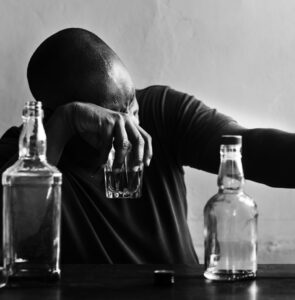As you learn to address bias and discrimination against those with drug addiction, it is important to recognize the vital role of advocacy in creating meaningful change. Here are some important details to help you in your efforts to promote a society that is compassionate and inclusive:
- Education and Awareness: Begin by learning about drug addiction, its causes, and the difficulties that addicts encounter. Helping others understand that addiction is a brain disease and “getting” addicted is dependent on a person’s heredity, environment, and mental health. By increasing your knowledge, you can better challenge stigmatizing beliefs and misconceptions surrounding addiction.
- Challenging Stereotypes: Advocate for the recognition that addiction is a medical condition rather than a moral failing or lack of willpower. Promote understanding that individuals with drug addiction deserve empathy, support, and access to treatment, just like individuals with any other health condition. Challenge stereotypes that perpetuate discrimination and contribute to social exclusion.
- Promoting Treatment Access: Advocate for improved access to evidence-based addiction treatment programs and harm reduction strategies. Raise awareness about the importance of providing comprehensive care, including detoxification, counselling, medication-assisted treatment, and ongoing support. Highlight the positive impact of early intervention and the potential for recovery with the right treatment and support.
- Destigmatizing Language: Advocate for the use of non-stigmatizing and person-first language when discussing addiction. Encourage the use of terms like “person with a substance use disorder” instead of derogatory labels. The words we use partly shape people’s opinions. How you speak about addiction can lessen stigma and discrimination.
- Policy Reform: Engage in advocacy efforts to influence policy changes that address the systemic barriers and discriminatory practices surrounding addiction. Support initiatives that prioritize harm reduction, decriminalization, and equitable access to treatment and recovery services. Join forces with organizations and individuals working to create positive change in drug addiction policies and practices.

By becoming an advocate, you can make a meaningful impact in challenging bias and discrimination against individuals with drug addiction. You are important and your voice matters. All of us, together, can make society more compassionate towards those who suffer with an addictive illness. This will contribute to positive and meaningful change. We can dismantle barriers and help the world understand addiction and recovery better. This will help addicts and alcoholics access treatment easier.
Understanding Challenges, You Can Develop Strategies to Overcome Them. Here Are Some Common Barriers to Consider:
Stigma and Misconceptions:
Deep-rooted stigma surrounding drug addiction can be a significant barrier to advocacy efforts. Prejudice, stereotypes, and misconceptions about addiction can lead to discriminatory attitudes and policies. Overcoming these barriers requires challenging stigmatizing beliefs, promoting accurate information, and fostering empathy and understanding.
Lack of Awareness and Education:
Limited understanding of addiction as a complex health issue is another obstacle to effective advocacy. Most people have no idea what causes addiction or what we’re capable of in recovery. It would be amazing if the world understood the underlying causes of addiction and that we do get better and become responsible, productive members of society. If the world knew that treatment for addiction was as successful as treatments for other chronic illnesses like diabetes, high blood pressure and asthma... they’d be very surprised. Evidence-based treatment actually works. Increasing awareness through education and sharing accurate information can help combat misconceptions and encourage support for those with drug addiction.
Structural and Systemic Barriers:
Systemic barriers, such as limited access to affordable and quality addiction treatment services, can perpetuate discrimination and inequality. Advocacy efforts need to address these structural barriers by promoting policies and initiatives that prioritize equitable access to comprehensive addiction care and support services.
Fear of Disclosure:
Fear of judgment and discrimination can prevent individuals with drug addiction from seeking help and sharing their experiences. Encouraging an environment of trust and support can help break down this barrier. By promoting open dialogue and reducing stigma, you can create spaces where individuals feel safe to disclose their struggles and seek the help they need.
Limited Resources and Support:
Our advocacy efforts may be hampered by a lack of money and time resources. Finding people to join in and organising a structure is tough. Finding like-minded individuals & community organizations to collaborate with will take work. Addiction healthcare professionals will mostly be very willing to jump in and help amplify your voice. They are used to advocacy efforts and will help leverage available resources to make a greater impact.

Q1: How can I make a difference in addressing bias and discrimination against individuals with drug addiction?
A1: You can make a difference by educating yourself about addiction, raising awareness, engaging in dialogue, supporting advocacy organizations, and promoting policy changes. Every small action can help. Don’t underestimate your efforts or your personal power in helping make change.
Q2: What can I do if I encounter someone who holds stigmatizing beliefs about addiction?
A2: Engage in open and respectful dialogue. Share accurate information about addiction, challenge misconceptions, and provide personal stories that highlight the realities of addiction. Seek common ground and promote empathy and understanding.
Q3: How can I support someone with addiction who is facing discrimination?
A3: You can offer your support and listen to their experiences without judgment. In reality… addicts and alcoholics need TREATMENT to get better. People with SUD & AUD don’t spontaneously remit! Get them help. Get them connected to resources such as support groups like AA & NA & CA, and get them admitted to a quality treatment programme.
Q4: Are there any local organizations that I can get involved with to support advocacy efforts?
A4: Yes, there are many local organizations that focus on addiction advocacy. Reach out to organizations in your area and inquire about volunteer opportunities, fundraising events, or advocacy campaigns. Your involvement can make a meaningful impact.
Q5: What are some policy changes that can help address bias and discrimination against individuals with addiction?
A5: Policy changes can include improving access to addiction treatment, ensuring equal rights and protections for individuals with addiction, implementing anti-discrimination measures in healthcare and employment settings, and destigmatizing addiction through education and awareness campaigns.
While these barriers may present challenges, your commitment to advocacy can help break them down and create positive change. By raising awareness, challenging stigma and advocating for policy reform you can contribute to a society that better serves their addicted population. Those suffering with addiction to alcohol or other drugs need help. Diabetics don’t just get better of their own accord. They have an illness and need medical treatment. A future where bias and discrimination are replaced with effective treatment options would be ace!.
By reaching out to experts in addiction treatment, such as our team, you can access the support, guidance, and resources necessary for your journey towards recovery. We’ll help to coordinate your admission and treatment if we can. If you’re on a medical aid, they’ll pay for treatment. If not, we’ll guide you towards resources like the 12-Steps. Contact us today to take that important step towards a brighter and healthier future.
As our very own Nelson Mandela once said, “It always seems impossible until it’s done.”

When you scrutinize the ‘War on Drugs’, you might find a chasm between its initial…

Navigating the road to recovery from addiction is a multifaceted journey, where integrating physical fitness…

There’s a quiet shame that follows people who’ve been to rehab more than once. You…

